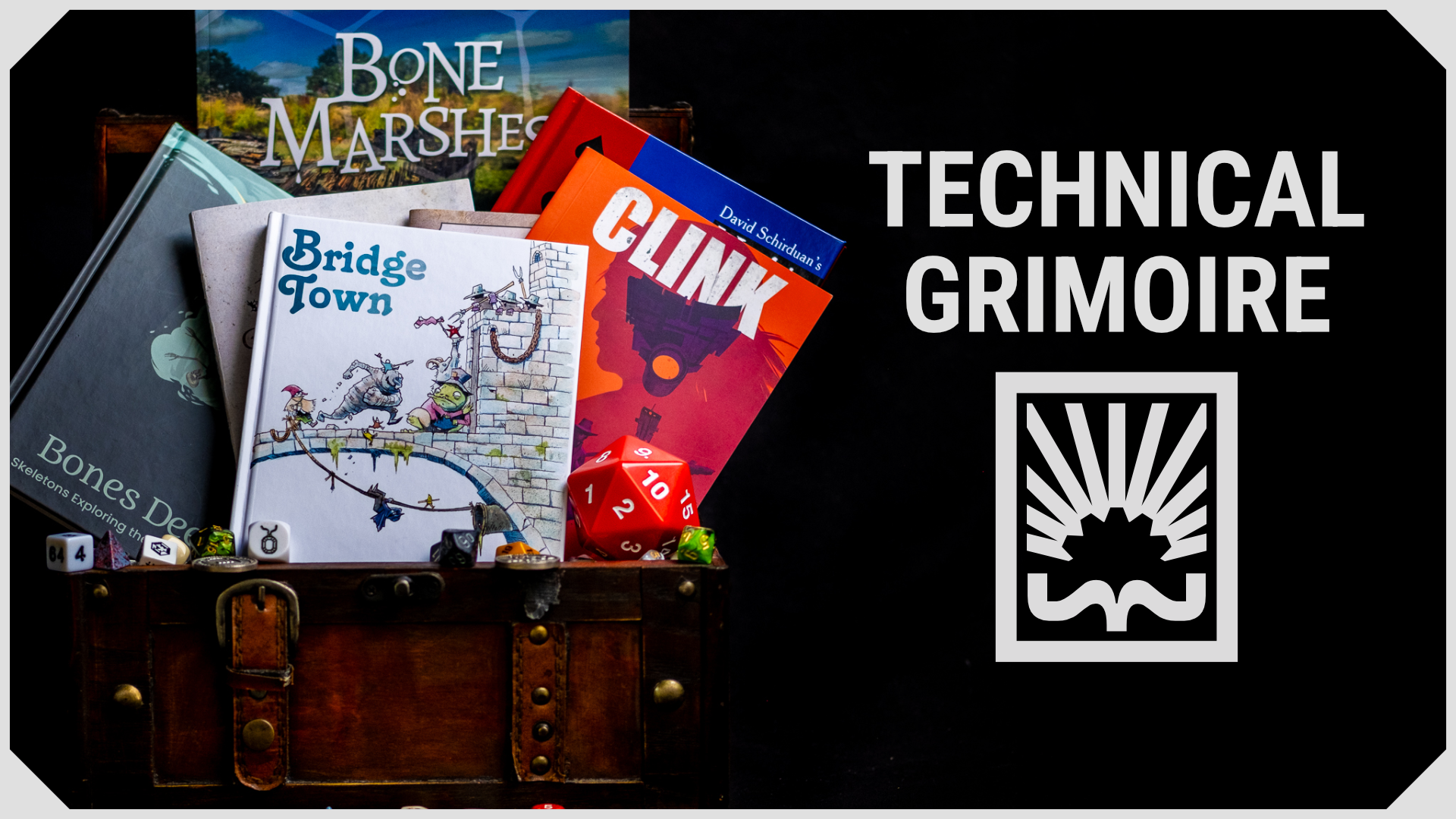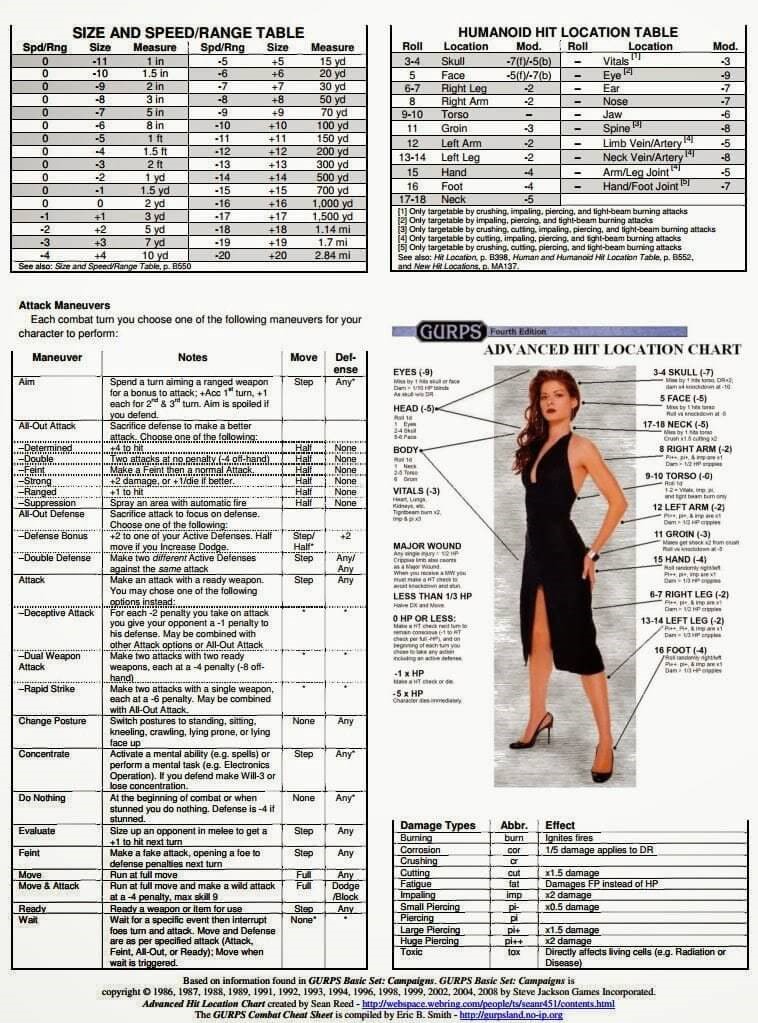The Power of Abstraction

One of the things that makes Tabletop Games great is how abstractions can be used to emulate real life without actually BEING real life. For example, to actually swing a sword and attack something is incredibly difficult, requiring a lifetime of training and experience. Rolling a 20 on a twenty sided die is also difficult, but requires much less skill and investment.
Dungeon World is much more abstract than most gaming systems. Some, like GURPS, have tons of tables and calculations for trying to accurately simulate real life. DW keeps it simple, relying on tags instead of long description, or general categories rather than specifics.

And this is just to calculate ranges and hits. Dungeon World, on the other hand, boils it down to a few ranges in game:
- Hand: It’s useful for attacking something within your reach, no further.
- Close: It’s useful for attacking something at arm’s reach plus a foot or two.
- Reach: It’s useful for attacking something that’s several feet away—maybe as far as ten.
- Near: It’s useful for attacking if you can see the whites of their eyes.
- Far: It’s useful for attacking something in shouting distance.
Because the guidelines are non-specific but clear; the minute details are open to interpretation to each group.
Player: “Alright, I’ve got my spear, I’m going to whip it around and stab him.” GM: “Well, he is on the other side of the room, probably more than 10ft.” Player: “Oh, okay, well I’ll run up to him, and slash him when I’m within range.” GM: “Cool. give me a strength roll.”
This allows the gameplay to continue being more like a conversation than a math problem. It also means that every GM is going to be different, and every group will be different. Maybe I don’t think an attack is in range, but another GM would have no problem with it. Likewise, a different GM might require the player to make a roll to dodge INTO combat, and set themselves up for an attack.
Recently I’ve been trying to use abstraction to keep the gameplay flowing smoothly, and not bogging down my players with rules or requirements. In this endeavor, money has become an issue.
In most games, gold is given in addition to other rewards. it allows players to buy what they need, and gives them a sense of accomplishment. Having a resources to save/spend/barter gives players more choices and options in the game world. Gold is usually pretty carefully balanced, and given out on a reliable and consistent basis.
Dungeon World does have rules for gold, but I’m not a fan. And my attempts to just keep a balanced gold economy off-the-cuff was NOT working…
“How much for some silver arrows? 20 coins! But 2 weeks ago you said I could buy a whole bundle of silver arrows for 5 coins. What if I just bought the arrow tips? What if I make my own arrows? What if I want half steel, half silver arrows?”
AUGH! It’s madeness! I just can’t estimate prices accurately. And I refuse to keep a master list of all the crap possible in the world. If you want such a list, here’s one. But for me, abstraction is the key!
I’ve un-ashamedly stolen from Joe Banner and made several tiers of wealth and fame. It makes sense to combine these into a common resource, since if the group just saved a village they shouldn’t have to worry about paying for drinks, no matter how poor they are. They’re heroes!
So, here are my categories of wealth, and how this works:
- Buying something BELOW your current FORTUNE costs you nothing. When you have 1000 gold pieces, buying a few drinks in the tavern won’t really change your wealth level.
- Buying something EQUAL to your fortune level lowers you down one category. So if you blow all your money on a wagon, then you might not be able to afford drinks any more.
- Buying something ABOVE your fortune level is very risky, and you could end up broke or in trouble.
I also designed the FORTUNE categories so that you can Roll + FORTUNE, and throw your wealth around.
Haggle (+CHA)
- 10+ convince someone your fortune is higher than it is. +1 FORTUNE (temp)
- 7-9 +1 FORTUNE (temp), but favor/trade required for purchase
- 6- cause a ruckus, -1 FORTUNE
Herald (+Cha): When you undertake a Perilous Journey, you can appoint a party member to spread word of your deeds, and hail your entrance. Roll + Cha:
- 10+ the party gains one FORTUNE
- 7-9 maintain FORTUNE
- 6- lose one FORTUNE
Here’s a link to the full sheet; it explains it better than I could.